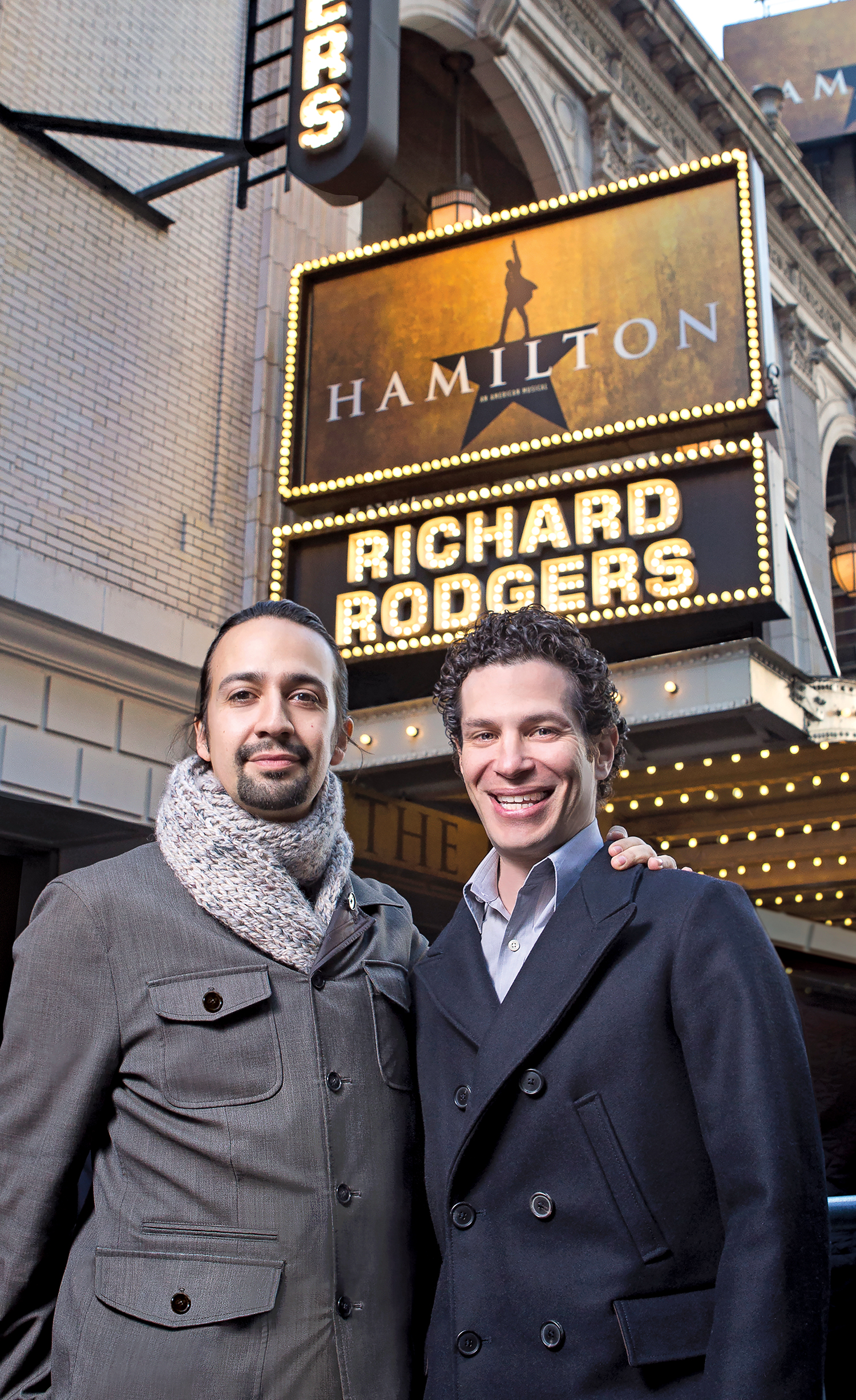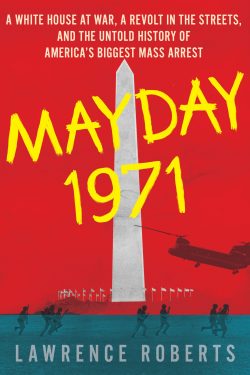CONVERSATION WITH A FILM CRITIC
What does a film critic really do? Corwin-Fuller Professor of Film Studies Jeanine Basinger talks with New York Times film critic A.O. Scott P’18 about why we need film critics.
A popular event during Reunion & Commencement 2016 was the WESeminar with Jeanine Basinger, Corwin-Fuller Professor of Film Studies, and A. O. Scott P’18, Distinguished Professor of Film Criticism at Wesleyan. Scott became chief film critic at The New York Times in 2004 and is the author of Better Living through Criticism: How to Think about Art, Pleasure, Beauty, and Truth (Penguin Press, 2016). An edited version of their conversation follows.
BASINGER: First of all, I want to say, really, your new book is beautiful. It’s an elegant, provocative, intelligent book about a lot more than criticism. I want to start our conversation by discussing something that people always want to know about film criticism, which is the actual process. What do you do each day and how is your work organized?
SCOTT: It starts when we get a list of movies that will come out in a given week. We have a setup that’s been around for a very long time at the paper. We have someone on the film desk who collates all the publicity announcements and sends it to me and to Manohla Dargis, my fellow chief film critic for The New York Times. We make our choices based on long-established kindergarten principles—sharing and taking turns. It’s now more than 10 years that we’ve had this partnership, and there have only been a couple of times when one of us has burst into tears. It’s usually been me. No editor has ever had to intervene, partly because there are a lot of movies to go around. We also make sure we alternate important filmmakers or franchise installments. One of the things that’s great about writing for The New York Times is that we review as many movies as we can. There is no particular pressure from the editors to do just the big Hollywood movies or just the important Oscar movies.
The Oscar movies will tend to get the bigger play and more attention, but we’re always free to write about whatever interests us—to write about documentaries, foreign languages films, or small indie films.
BASINGER: Do you ever take a big movie and say, “We won’t review this”?
SCOTT: Someone will review it, but sometimes that will be a freelancer or a stringer. Our standard is that we think about which movies are interesting to write about. Very often, big commercial movies are interesting to write about even if they aren’t very good. The ways they aren’t good and the ways they fail their audiences can be quite interesting.
BASINGER: Do you always see the film under review with an audience? We do wonder: Are you watching this with an audience? Are you seeing it on the big screen? Are there rules? Are there special assignments? It helps us to understand the integrity of your viewing.
 SCOTT: Happily, the standard is still to see the thing projected. That’s my preference, and that’s the preference of the distributors. This is true even for smaller releases when most of the audience will be watching in a home setting. You could say, “What’s the difference between watching it on your TV in Blu-ray or in a screening room?” But the important thing is the uninterrupted time and attention. You’re watching. It’s dark. You can’t check your e-mail. The image is supposed to fill your field of vision.
SCOTT: Happily, the standard is still to see the thing projected. That’s my preference, and that’s the preference of the distributors. This is true even for smaller releases when most of the audience will be watching in a home setting. You could say, “What’s the difference between watching it on your TV in Blu-ray or in a screening room?” But the important thing is the uninterrupted time and attention. You’re watching. It’s dark. You can’t check your e-mail. The image is supposed to fill your field of vision.
BASINGER: But you are not alone, right?
SCOTT: You are not alone. Sometimes, you are in an audience of other critics and journalists. There are screenings that are just for critics that are in smaller screening rooms, or in postproduction facilities, or in the corporate offices of the studios. There are also sneak previews in multiplexes with rows of seats taped off for critics.
BASINGER: Are there rules about viewing the movie? Are you not supposed to laugh and give away your response?
SCOTT: No, there aren’t really rules. There are people who are eager to get their opinions out as soon as they can. As soon as the credits are rolling, if you go on Twitter you’ll see them. I like to take a little more time. I’m glad to have a week or more between the screening and the deadline.
BASINGER: It’s interesting to hear that some critics start writing their critique before the film is over.
SCOTT: I think most film critics try to walk into each movie with a blank slate. We have our tastes and our prejudices. We have everything that’s happened to us that day, and we have all the places we might rather be. But one of the principles of film criticism is that you put that aside. You sit down, you look at the screen, and you allow whatever is going to happen to happen. You open yourself to it. It may be a genre you don’t particularly care for; it may be a director whose previous work has left you cold, but something might happen this time.
BASINGER: We know of some actual historical precedents—one in which someone negatively reviewing The Sound of Music got fired. Does that actually happen very often?
SCOTT: I think it does happen, but I think there is a tradition at the Times of protecting its critics. There are famous stories about when Ken Turan negatively reviewed Titanic and James Cameron went on a very public crusade to discredit him and get him fired from The Los Angeles Times. Mostly when that kind of thing happens, it strengthens the resolve of the papers.
BASINGER: Let’s talk about the role of film criticism and if we need it. Who should be a critic and why? Tell me why I need you.
SCOTT: Strictly speaking, no one does. People have gone to the movies for more than 100 years now, by the hundreds of millions, and most of those people have not been dedicated consumers of criticism. You can go to the movies and have a perfectly good time without reading reviews. On the other hand, I’ve always thought that criticism exists for people who are interested in it. It’s an art form. There are people who are interested in movies and want to engage or enhance that interest with someone else.
Critics can provide a lot of things: consumer advice, historical or technical knowledge, or information that might not be readily available. What critics offer most fundamentally is companionship: someone to talk with about the movie, before or after. Critics are the voice I want to hear talking to me about an experience we have in common—even if our understanding of our experience is not the same.
BASINGER: So that’s what really separates it from lobby talk? We all go out in the lobby and start talking and suddenly we’re critics. We converse and we argue, but film criticism officially brings together all the lobby talk and elevates it into something.
SCOTT: I think that’s right. Having an opinion is not criticism. Lobby talk is not criticism, but it’s where criticism begins. They flow from the same impulse—to think, to argue, to react, and to reflect. Critics are human beings. We’re going to the movies and having the ordinary range of responses, but then it’s a question of how do I sort that out? How do I put that into a form that will be interesting and maybe entertaining and useful?
BASINGER: When you sit down to actually write, are you talking to me, to yourself, to other critics—or are you talking to history?
SCOTT: Sometimes I’m talking to you— maybe specifically to you, Jeanine Basinger! Sometimes I’m talking to one of my best and oldest friends, Michael Trask, Wesleyan Class of 1989. Sometimes I’m thinking about defending or explaining this movie to a particular person. Mostly, or before that, I’m talking to myself. For me, writing is a way of figuring out what I think. I don’t necessarily start out with a set of conclusions. I arrive at conclusions along the way. Writers who I like most to read, critics and otherwise, are writers where you feel the work of thinking going on in the prose. Writing for a daily newspaper is not the last word, it’s the first word. It’s a judgment that inevitably will be challenged, corrected, and modified with time.
BASINGER: In an era when everybody blogs and creates their own websites, everybody becomes a critic, not just in the lobby. How will that affect your job? Will it kill it off?
SCOTT: I don’t think it’s killing it off. You can’t just rest on the authority of your institutional position. Each time you have to go out into this very noisy and competitive scrum and get your voice heard. There is a constructive pressure to do better. You have to earn your readers.
BASINGER: One thing you wrote about in your book that I found interesting was your idea about the critic’s right to be wrong. You referred to one of your greatest moments as being your bad review of Avengers: Age of Ultron, a Wesleyan alumnus project.
SCOTT: The longest chapter of the book is called “How to Be Wrong.” That’s one of the most important jobs that critics have. There are very passionate fans in the world who will get very mad at you if you are going against their tastes, and there is a sense that the market has the last word. It’s true that every critic is a public of one. We need to be true to our own thoughts and to call them as we see them. A work of art keeps living in the world and it keeps changing, and the idea of it keeps changing. Public opinion changes; popular tastes change. Works that were hailed as masterpieces are forgotten. Other works that were forgotten or neglected are recovered as great masterpieces. Criticism and critics are part of that process. I talk about a few cases of misjudgment. My favorite is New York Times critic Frank Nugent reviewing Bringing Up Baby and giving it as harsh and dismissive a review as any I’ve ever given to Adam Sandler.
BASINGER: We just showed Bringing Up Baby in a class where the students were allowed to vote on their favorite and least favorite films shown. Their least favorite movie was Bringing Up Baby. They said that Katharine Hepburn drove them up the wall. So who should be a critic? Who has the nerve? What are the credentials? What are the challenges?
SCOTT: The word you use, “nerve,” is very important. In a way, there’s no license, no ordination, and nothing that qualifies you to do this other than your own audacity to say, “Here’s what I think.” Criticism is finally a form of writing. What any writer wants from readers is a relationship of trust. I was very conscious writing this book about the critics who often I disagreed with, in terms of their particular judgments or their larger theories. For example, [writer and filmmaker] Susan Sontag is someone who I read and reread all the time, who I think was wrong about just about everything but who is a great thinker. To watch the drama of her mind working is something that I’ll never get tired of.
BASINGER: Your book is full of the knowledge of other art forms, and of other critics, and of the history of criticism, which is what makes it so wonderful. Your son Ezra ’18 is a film major right here in our academic program. He’s going to have a liberal arts education, but he’s also going to learn how to make a film, how to take a film apart critically, and learn the history of film. Would that mean that, over time, he would be a better film critic than you?
SCOTT: I think he already is. I have no such education. I never took a film class. Criticism is a broad stream that’s informed by a lot of different things. I’m impressed with the students here—how thoroughly they’ve absorbed that knowledge. They know what they’re talking about.




